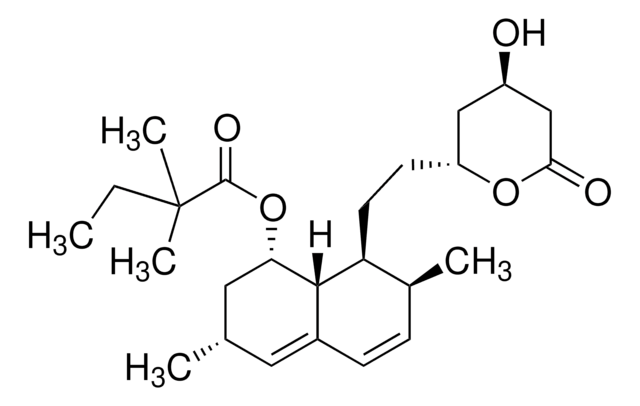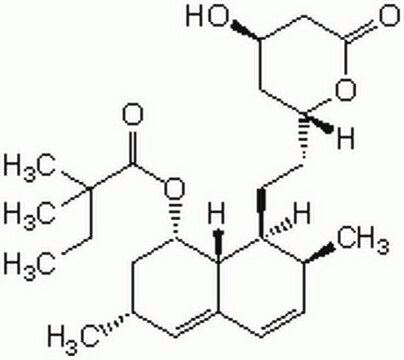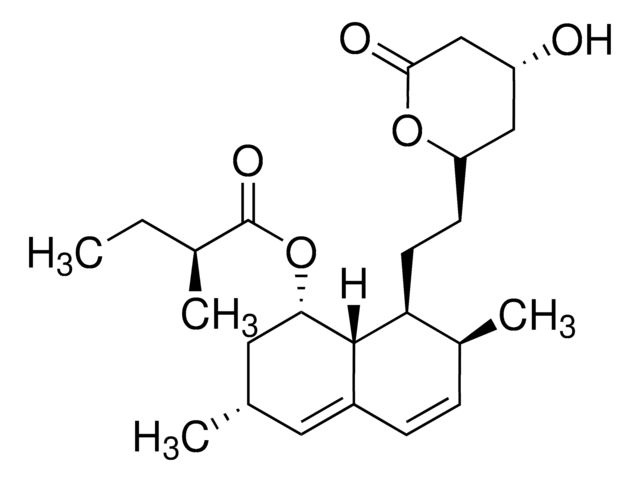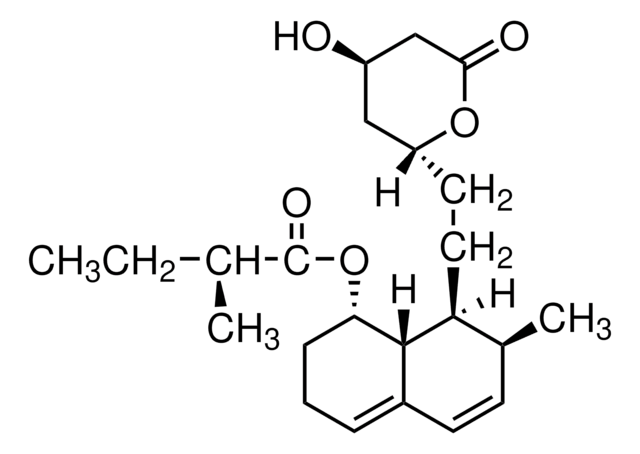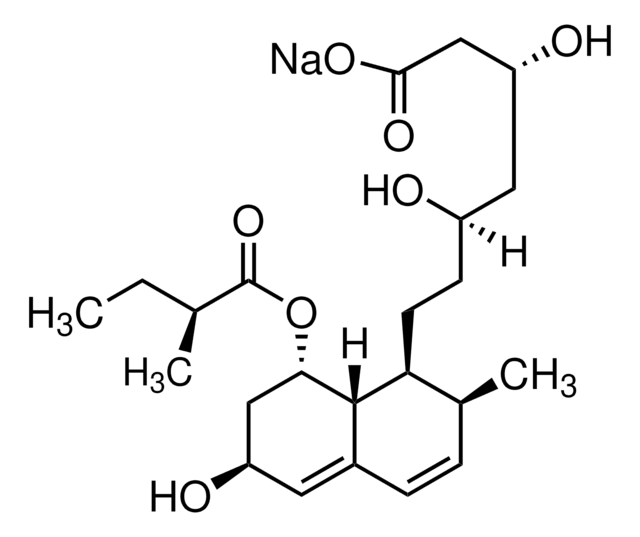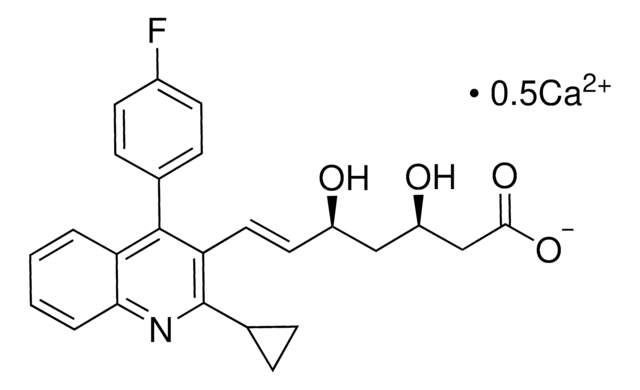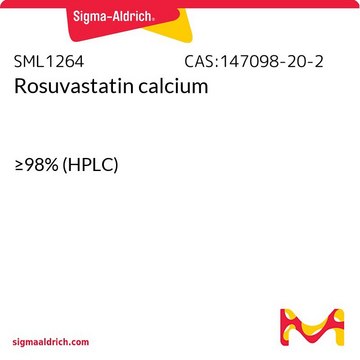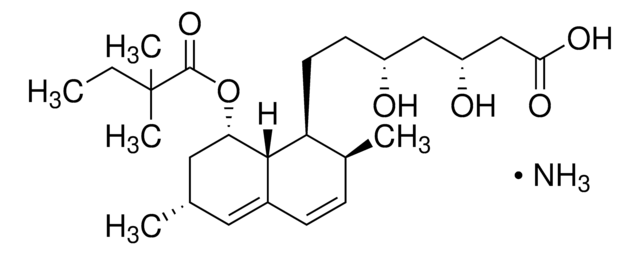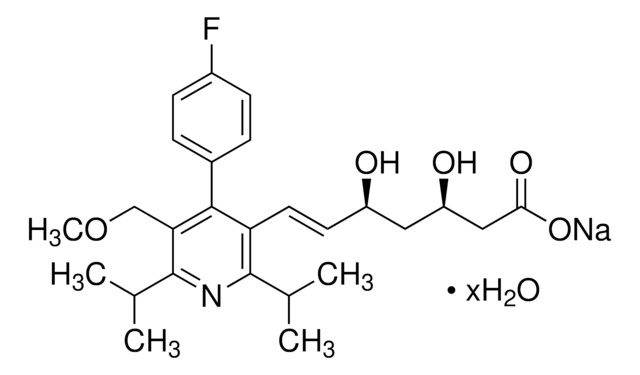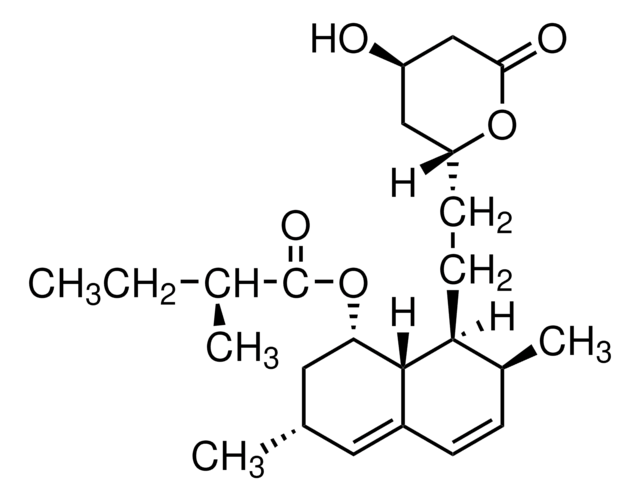S6196
Simvastatin
≥97% (HPLC), solid
Synonym(s):
MK-733, SVA
About This Item
Recommended Products
Quality Level
Assay
≥97% (HPLC)
form
solid
color
white
mp
127-132 °C (lit.)
solubility
DMSO: ≥20 mg/mL
originator
Merck & Co., Inc., Kenilworth, NJ, U.S.
storage temp.
2-8°C
SMILES string
[H][C@]12[C@H](C[C@@H](C)C=C1C=C[C@H](C)[C@@H]2CC[C@@H]3C[C@@H](O)CC(=O)O3)OC(=O)C(C)(C)CC
InChI
1S/C25H38O5/c1-6-25(4,5)24(28)30-21-12-15(2)11-17-8-7-16(3)20(23(17)21)10-9-19-13-18(26)14-22(27)29-19/h7-8,11,15-16,18-21,23,26H,6,9-10,12-14H2,1-5H3/t15-,16-,18+,19+,20-,21-,23-/m0/s1
InChI key
RYMZZMVNJRMUDD-HGQWONQESA-N
Gene Information
human ... HMGCR(3156)
rat ... Hmgcr(25675)
Looking for similar products? Visit Product Comparison Guide
General description
Application
- as an inhibitor of HMG CoA reductase (HMGCR)
- to study its effects on epithelial to mesenchymal transition (EMT) and the prognosis of patients with lung adenocarcinoma
- in in vivo studies to test its effect on brain tumor−initiating cells (BTIC) viability and cell proliferation
- to study the role of adenosine triphosphate (ATP)-binding cassette transporter A7 in phagocytosis of Jurkat cells
- to study the effect on endothelial dysfunction and inflammation in mice
Biochem/physiol Actions
Features and Benefits
Signal Word
Warning
Hazard Statements
Precautionary Statements
Hazard Classifications
Repr. 2
Storage Class Code
11 - Combustible Solids
WGK
WGK 3
Flash Point(F)
Not applicable
Flash Point(C)
Not applicable
Personal Protective Equipment
Choose from one of the most recent versions:
Already Own This Product?
Find documentation for the products that you have recently purchased in the Document Library.
Customers Also Viewed
Articles
The amount of cholesterol that is synthesized in the liver is tightly regulated by dietary cholesterol levels. LDL receptors regulate the cellular transport of lipid rich low density lipoprotein (LDL) particles.
Dietary Terpenes
Randomized controlled clinical studies have suggested 3-hydroxy-3-methylglutaryl coenzyme A (HMG-CoA) reductase inhibitors (statins) are effective in both primary and secondary prevention of cardiovascular disease (CVD) events.
Our team of scientists has experience in all areas of research including Life Science, Material Science, Chemical Synthesis, Chromatography, Analytical and many others.
Contact Technical Service